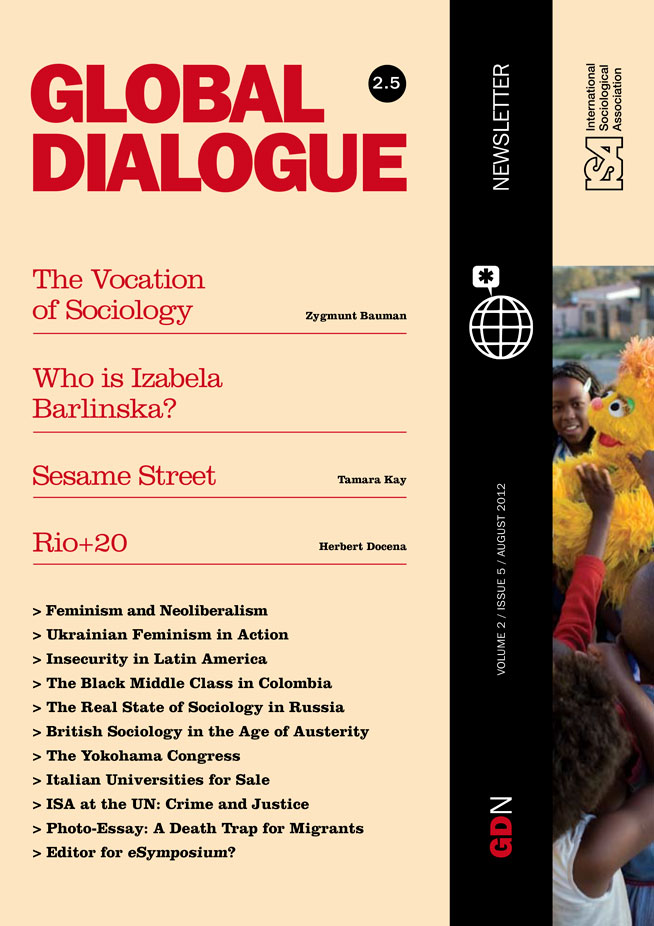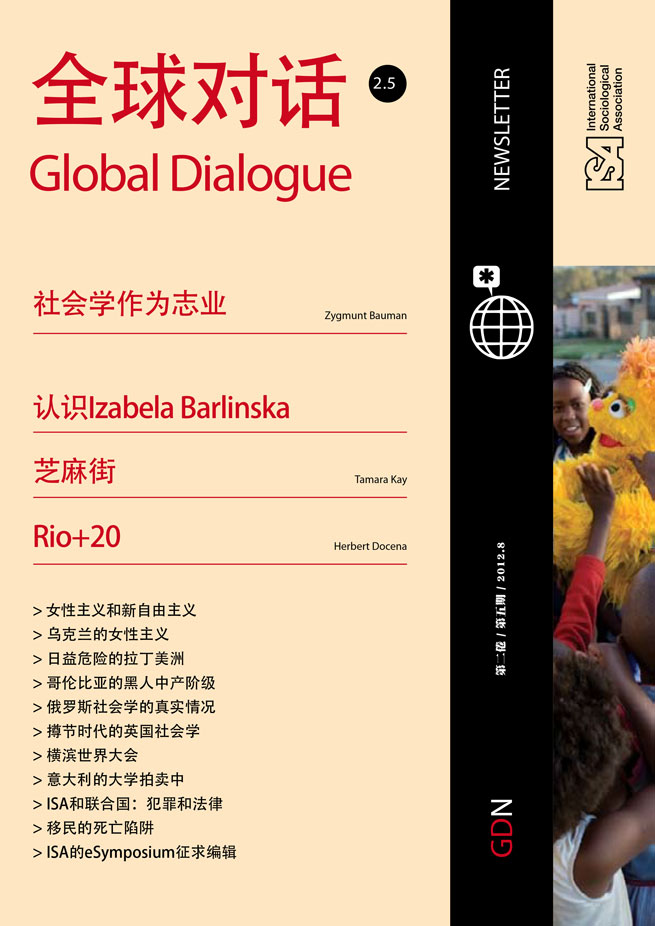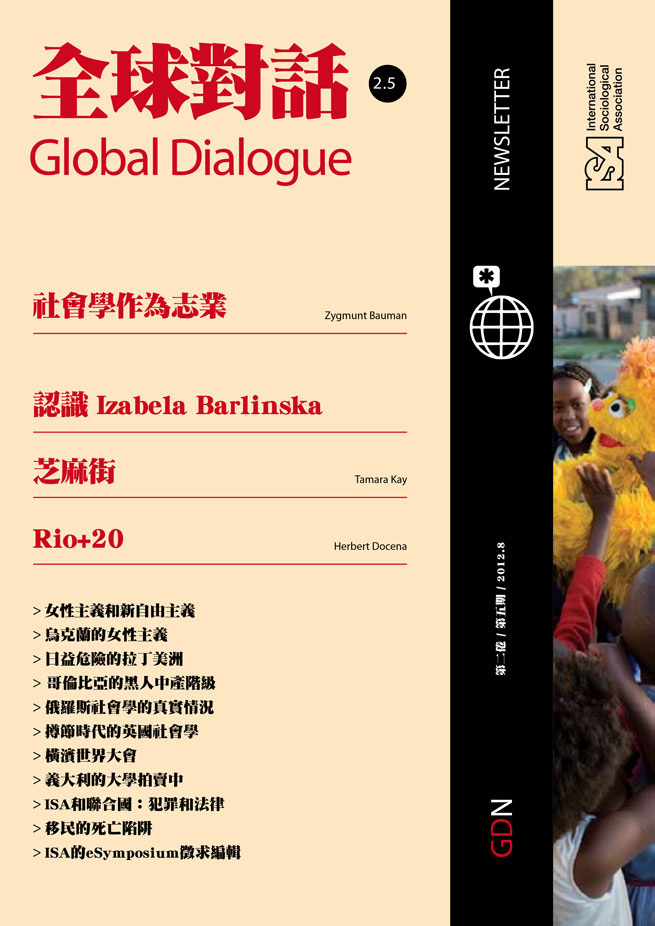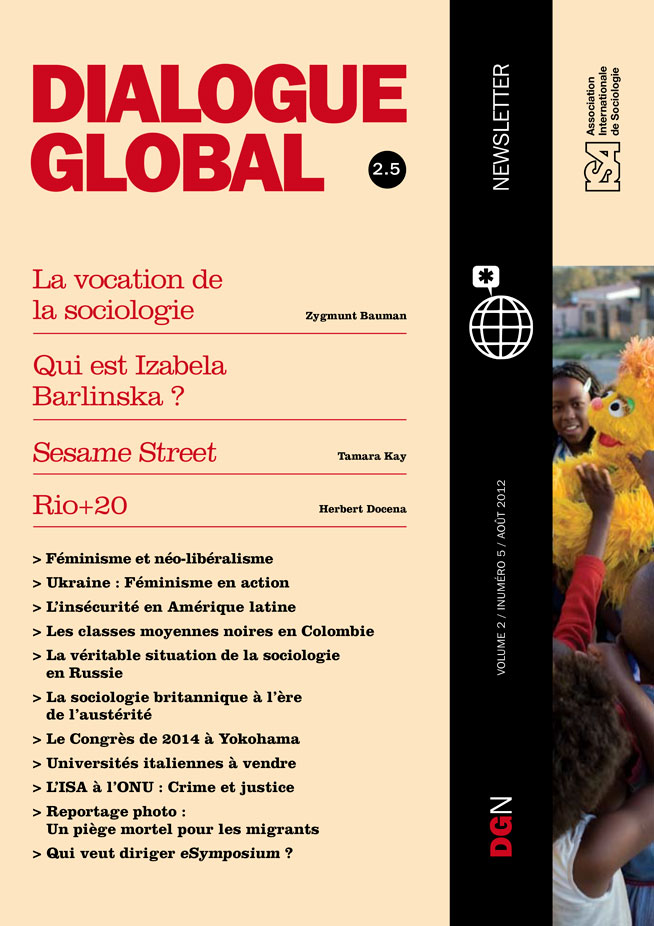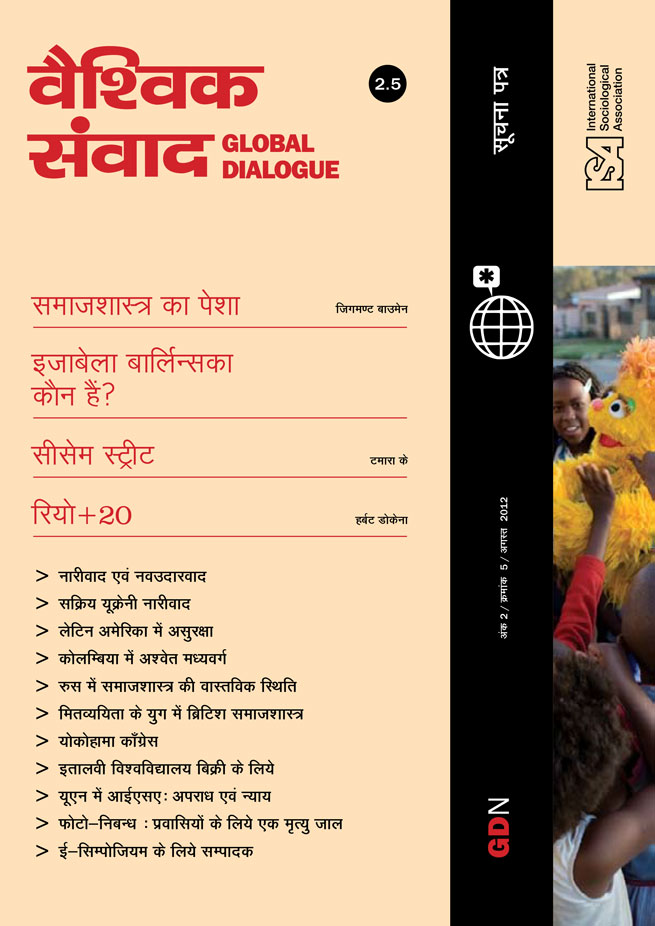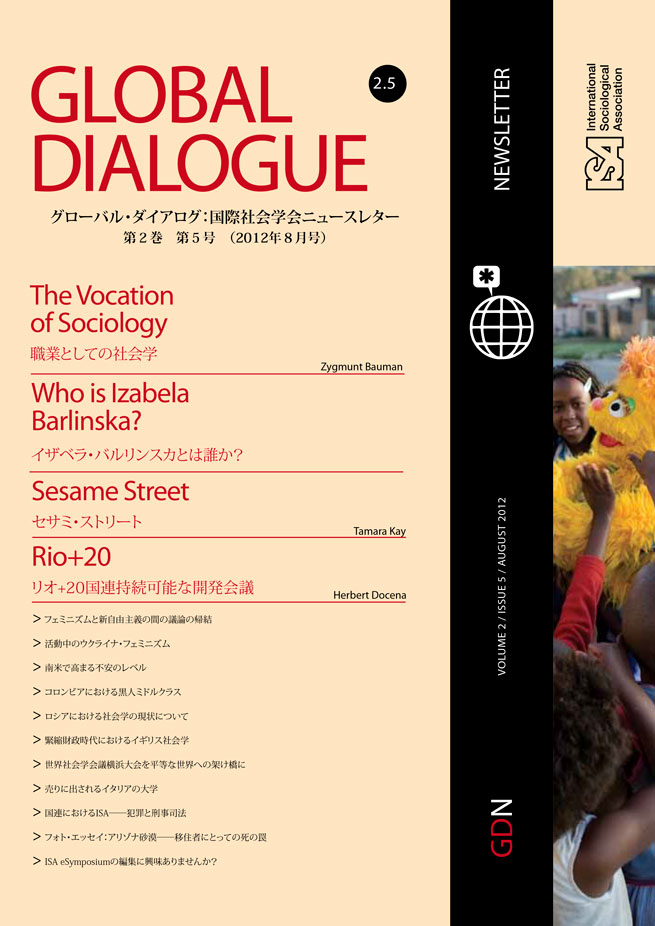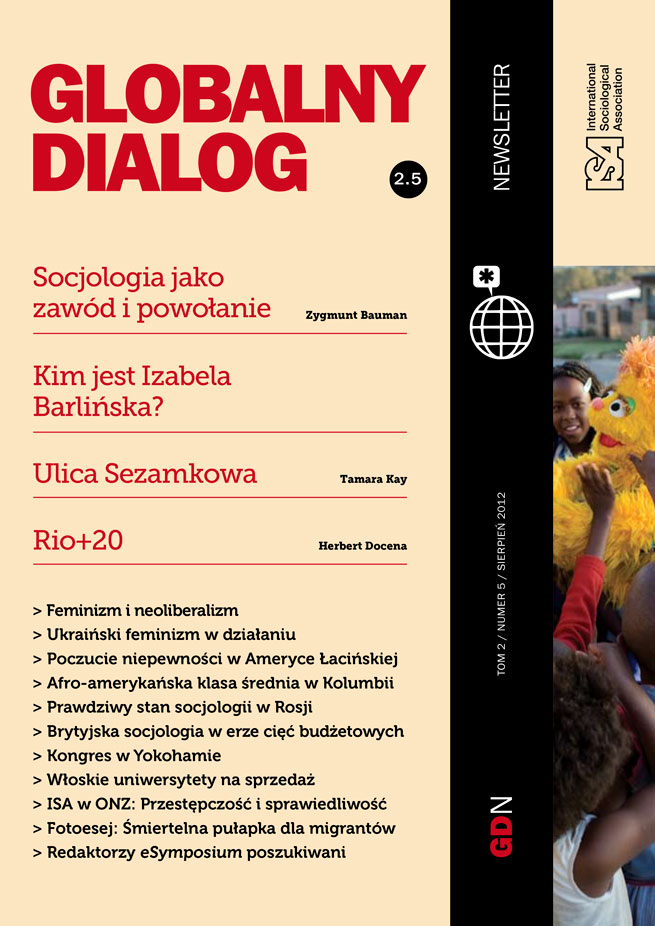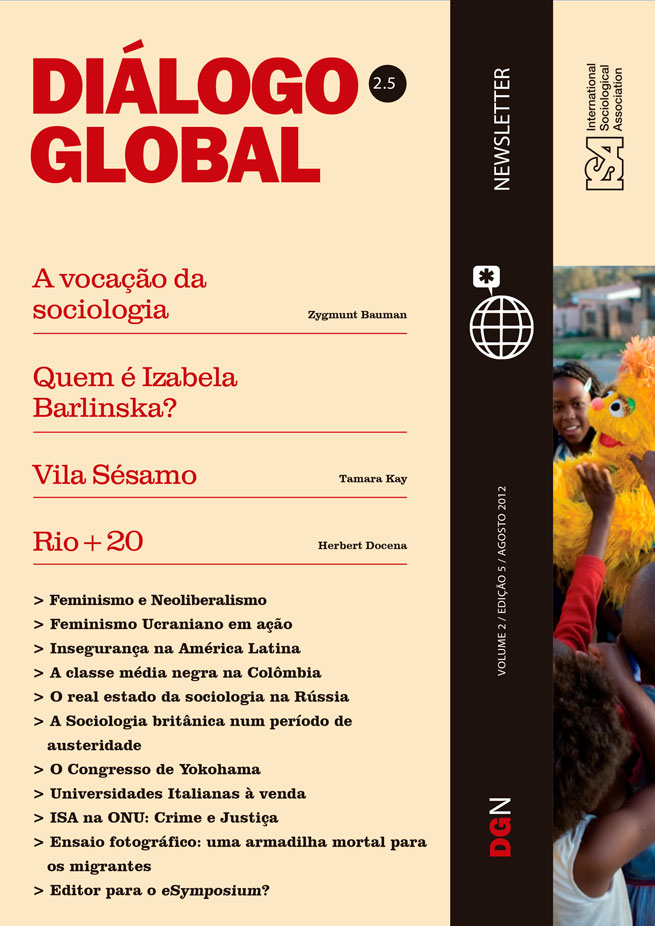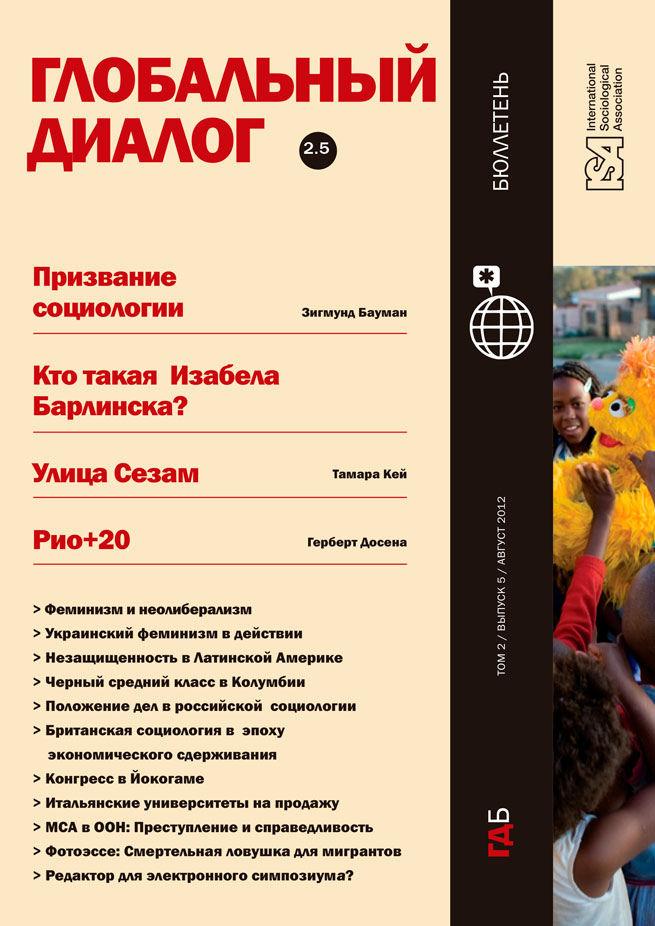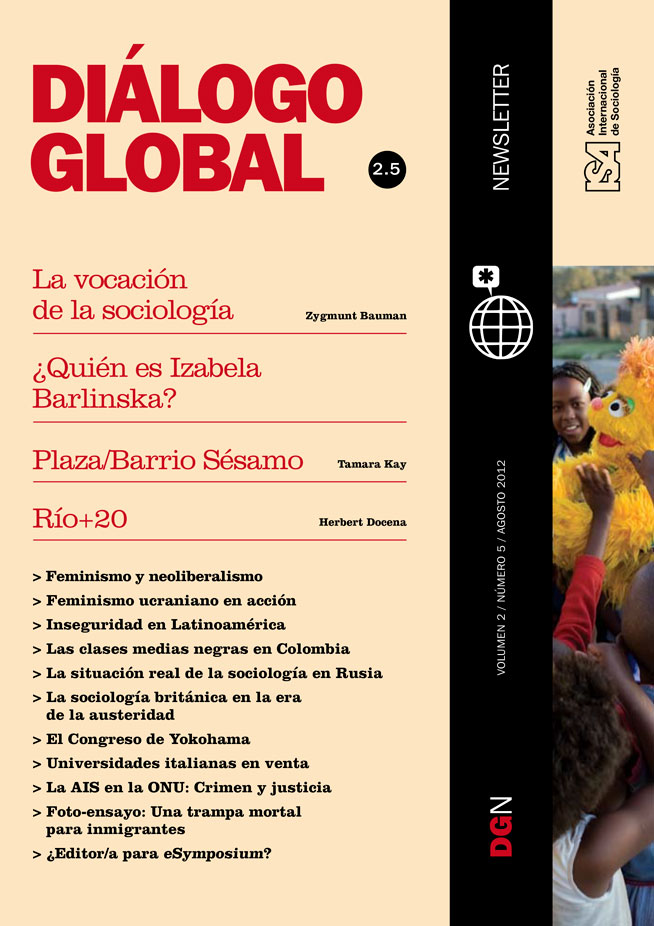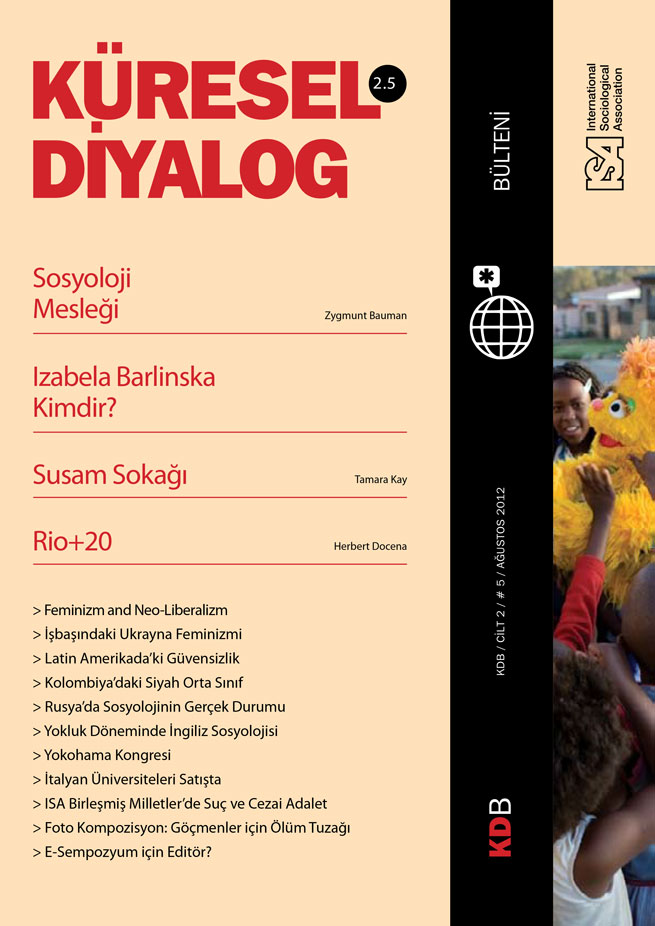Read more about Negotiating the Future

Educating Children on the Longest Street in the World
by Tamara Kay
July 13, 2012
UN conferences have grown larger and larger through the years, attracting thousands of government officials, activists, business executives, and even celebrities. At the UN Conference on Sustainable Development in Rio de Janeiro this June – said to be the biggest UN conference in history – another group of participants also jostled to make their presence felt: scientists.
If business executives had their “Business Day” meetings at a hotel, activists had their “People’s Summit” at a park, scientists also organized their own space parallel to the official summit: a “Forum on Science, Technology, and Innovation” at a Catholic university near Ipanema. Unlike the other “side-meetings” for business or for activists, however, it was not immediately clear what sort of conference it was, or what it intended to achieve. But what it did turn out to be may be indicative of how the scientific community is positioning itself vis-à-vis other actors grappling with the environmental crisis.
What sort of scholarly conference was this?
While there were numerous presentations showcasing state-of-the-art knowledge in various scientific fields, this was not apparently organized as a scholarly conference. There were not really enough specialists from each field to go over and debate the findings presented. Most of the participants were officials or members of the main organizing body, the International Council for Science (ICSU), as well as science bureaucrats from other “partner” organizers such as international science agencies like UNESCO, scientific NGOs like the International Social Science Council (ISSC, of which I was a delegate), a few other practitioners from the various scientific disciplines, as well as government officials and representatives from business – including a Vice-President from Dow Chemical and the CEO of Blackberry.
If the goal was to foster deeper links across disciplines, very little time was actually devoted to meaningful interaction between participants: For five days straight, the audience had to sit through panel after panel, each with about seven to eight speakers all speaking down to the audience from a high stage for two hours, and with only the last ten to fifteen minutes devoted to a rushed “question-and-answer” session.
There were numerous openings for debate, such as when one geographer expressed relief that she was not an environmental economist tasked to make “heroic” assumptions to measure the cost of a life or the value of a forest, thus touching on one of the enduring controversies within the social sciences, but also hinting at the resentment felt by geographers vis-à-vis their more powerful counterparts in economics. Or when one engineer casually said that the role of social scientists is to determine the “cultural appropriateness” of solutions already decided by them (the engineers), thus touching on one of the sore points of contention regarding the division of labor between “natural scientists” and “social scientists.” Or when, indeed, speaker after speaker repeatedly referred to physicists, chemists, or engineers as “natural scientists” – as though what social scientists study were somehow not part of nature or unnatural. The notion that society is “the most powerful collection of physical and moral forces that we can observe in nature,” as Durkheim had long ago suggested, seemed to have failed to gain traction beyond sociology.
These moments of tension between and across disciplines—revealing stark differences in worldviews and largely invisible issues of power – pointed to the vast range of issues that could have been clarified through the kind of deeper, thoughtful dialogues that rare (and expensive) trans-disciplinary conferences like this offered.
Seeking partners in business and government
As the speeches and interventions of the main organizers and many of the presenters soon made clear, this conference may not have been about helping scientists move beyond a state of mutual misunderstanding. Indeed, it may not even have had science practitioners as its primary audience.
Throughout the week, many (though not all) speakers instead addressed mainly two sets of actors, a few of whom were in the audience: officials from governments (or international organizations) and from business. Speaker after speaker would begin by decrying the supposed gulf between scientists and “stakeholders” – a gulf they see in the latter’s supposed lack of interest in, and lack of support for, the former’s research initiatives. They would then invariably call for bridging this gulf through closer “partnerships” between scientists and “decision-makers.”
To give them greater “ownership” over their research outputs, speakers invited funders, business, and policymakers to “co-design” and “co-produce” their research with them – in other words, to help them identify their research questions and to find concrete applications for their findings. “Other sectors of civil society” were mentioned too, but few of them were actually invited to the conference. In exchange for greater “support,” scientists offered policymakers and business executives the knowledge they need to understand what they called “GEC” – “Global Environmental Change” – and to “manage” the “social transformations” required to achieve “sustainable development.” On offer were all the new concepts and all the new metrics for measuring various aspects of this new object that scientists themselves are now helping construct: the so-called “green economy.”
To be sure, there were a few critical voices: the ISSC and its delegates, for example, often challenged the technocratic predilections of the “natural scientists” in the room by insisting on the historical or systemic roots of today’s environmental crises. At least one speaker called for a stronger alliance with social movements, such as the activists and indigenous peoples fighting oil companies to “keep oil in the hole” in Ecuador.
For the most part, however, the conference remained mainly a science-state-business dialogue grounded in the old technocratic assumption and managerialist vision: that the problem is that “decision-makers” simply don’t have the knowledge needed for them to make the right decisions, but that if they are given the right knowledge by scientists, then all will be well. Ignorance, not power structures or systemic pressures, is behind environmental degradation. Change will come through good “management” from the top, not through resistance from below.
One initiative that seems to embody this assumption and that got the most mileage in the conference was the ICSU’s “Future Earth” project, an ambitious ten-year research initiative that aims to mobilize thousands of scientists “to deliver the knowledge needed to enable societies to meet their sustainable development goals.” Already backed by some of the world’s wealthiest research funders, the initiative was billed by one speaker as “one of the most unique partnerships ever seen.” In response to the presentation, the CEO from Blackberry spoke approvingly of the need for “actionable research,” then warned scientists against the perils of “ideology.”
Despite a few critical interventions, then, the content and structure of the program, especially the repeated calls for “partnerships” with business and government, made it difficult not to leave the conference without thinking of it as a glossy, well-orchestrated sales pitch by science bureaucrats and scientists wanting a share of the increasing sums of money that governments and businesses have begun to allot to social- and geo-engineering projects for “adapting” to and “managing” the environmental crises.
Questions not posed…
This search for lucrative partners does not necessarily mean the bureaucrats and scientists who organized the conference are greedy research mercenaries. It could be that they actually consciously or unconsciously share with their prospective “partners” the same answers to the following fundamental questions which this conference could have debated further but did not:
Should we really think of nature as a provider of “ecosystem services” – and should we really put a price on those “services”? Elsewhere in Rio, at the official summit, developing-country negotiators, backed by many activists, resisted even using the term “ecosystem services” in the final declaration, as was being pushed strongly by the US and other developed countries, because they fear it could further deepen the “financialization” of nature. But here at this conference, scientists routinely used the term without much pause. When challenged about this, the answer of one geographer (one of the main proponents of “Future Earth”) was basically: read the latest issue of Nature journal, it’s been resolved by science.
Is it really possible to reconcile endless growth with environmental protection, as proponents of “sustainable development” and today’s “green economy” proclaim? Elsewhere in Rio, at the People’s Summit, endless growth is considered antithetical to sustainability. Similarly, the “green economy” is widely derided as “green capitalism,” as an effort to avoid the structural changes required to really conserve nature. But here at this conference, scientists were touting their expertise precisely to help governments and businesses attempt to make what may be impossible possible.
Who, to recall the source of the most enduring rifts in the international environmental negotiations, is really responsible for our environmental crises and how should we relate to them? Elsewhere in Rio, many pointed to transnational corporations and rich-country governments – what one social scientist here called the “power elites” – as the ones to blame. At the People’s Summit, they were routinely called “criminals” and “murderers.” But here at the science conference, they were “partners” to be wooed and courted as “co-designers” and “co-producers” of our research. “We shouldn’t see the ‘power elites’ as the enemy,” one anthropologist argued. “That is not constructive… I don’t think we have time for political change. We need to engage with them. There is no other way.”
The power of neutrality
In seeking to “partner” with governments and businesses, scientists repeatedly invoked one valuable selling point – something everyone else in Rio is implied to lack: their supposed “neutrality,” their detachment, their lack of interest. They brandished, perhaps unconsciously, this supposed impartiality whenever they called for “a new contract between science and society” (as if we stand apart from or above society). Or when they advocated greater links with “stakeholders” or with “decision-makers” (as though we have no stakes and we do not get involved in making decisions by the very ways we frame and present problems and by the very answers we take for granted). Or when they insist that their findings should only be “policy-relevant” and never “policy-prescriptive” (as if by restricting relevant policies to those that assume that there is no other way but “the green economy,” we are not prescribing anything).
And yet, despite this repeated profession of neutrality, it seems the scientists here have already taken sides.
Herbert Docena received a student fellowship from International Social Science Council (ISSC) to participate in the Rio+20 UN Conference for which he is very grateful.
Herbert Docena, University of California, Berkeley, USA
This issue is not available yet in this language.
Request to be notified when the issue is available in your language.
If you prefer, you can access previous issues available in your language:

